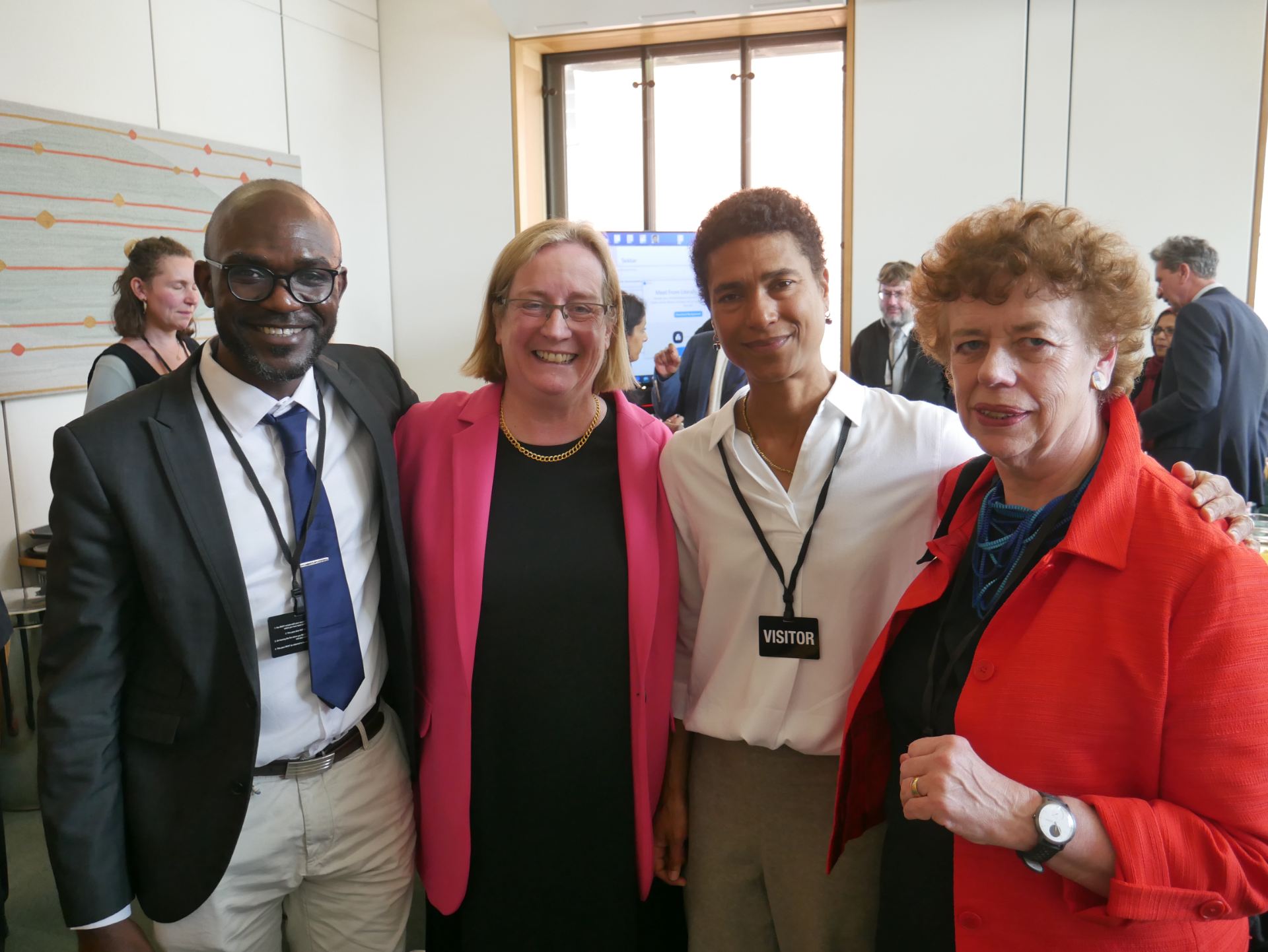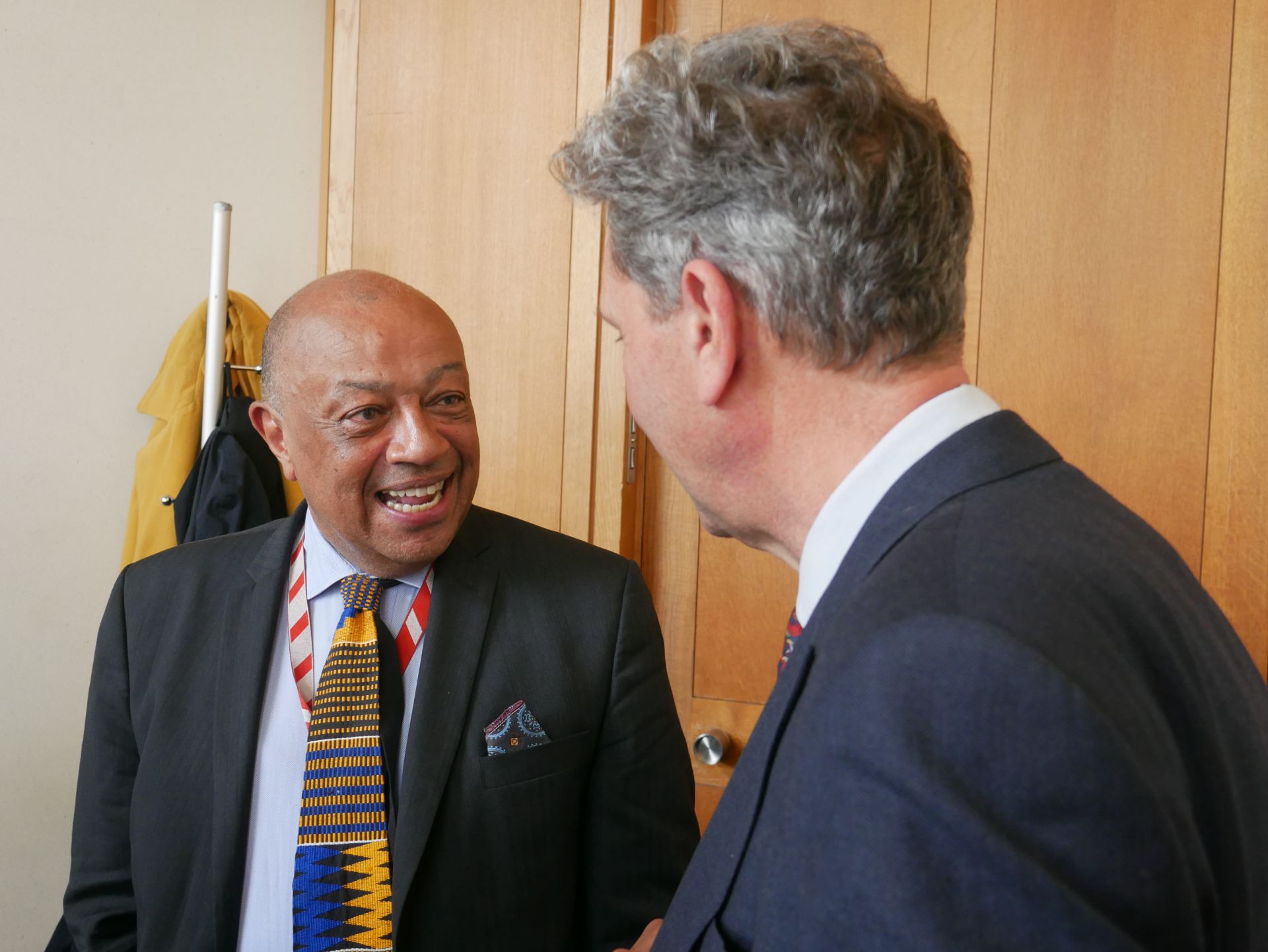The Charter Initiative is concerned with the urgent need to work towards rebalancing the profoundly unfavourable positioning of Africa in the global science ecosystem – beginning with transforming the ways in which Africa-UK research collaborations are configured.
Last month we took some important first steps in bringing the Charter Initiative to the attention of UK policy-makers with a roundtable at the All Party Parliamentary Group for Africa (APPG-A). The PARC team, together with our University of Cape Town and University of South Africa partners, the Perivoli Foundation and University of Bristol Vice-Chancellor Professor Evelyn Welch, joined MPs and other stakeholders working on Africa policy and research relationships.
The event was an informative two-way discussion which looked at the successes achieved by existing UK equitable partnerships efforts, the need for a Charter on transformative research collaborations, and how the APPG-A could potentially continue to support and engage with the Charter Initiative.
The meeting aimed to address questions around what further rebalancing is needed, what the UK Government and funders need to do to enable it, and how the APPG-A could inform and help to advance the Charter Initiative.

The Discussion
Chi Onwurah MP, Chair of the APPG for Africa welcomed delegates, and then Marie Staunton, Chair of the UK Collaborative for Development Research (UKCDR) Strategic Coherence of ODA-funded Research (SCOR) Board described the hallmarks of equitable research partnerships: mutuality in participation, trust, respect and benefit, and equal value placed on each partners’ contribution at all stages of the research process. Marie explained how equitable Africa-UK partnerships have delivered success, and what has been done by parliamentarians to date: following work on equitable partnerships principles, a global taskforce was set up in 2019, followed by a resource hub and good practice document. She also highlighted that if you design an agreement for equitable partnerships, it won’t be successful unless there are clear and quantifiable KPIs. Additionally, it is essential to bring funders together to look at what the KPIs should be, and government departments who provide such funding need to be clear about their strategy and system, and what impacts they want to be realised.
The Charter Initiative was introduced by PARC’s Professor Isabella Aboderin, and Professor Divine Fuh from the Institute for the Humanities in Africa (HUMA), University of Cape Town, South Africa.
Professor Aboderin emphasised the long history of thought that underpins the Charter, and that there is a need not only to build upon, but to go beyond, present equitable partnerships efforts. With the world facing various crises, some existential, there has never been a better moment to make a fundamental change. Threats to humanity underscore the need for powerful international collaborations and, to be powerful, they must make use of a multiplicity of knowledge frameworks. There must be alternatives to the monochrome logic of western ideas which continue to dominate science and knowledge. She said:
African scholars and institutions and knowledge must take their rightful place in global knowledge creation, not just for Africa but for the world.
Such a transformative movement must be embedded as best practice, requiring change in individual mindsets, shared norms, funding streams and policies.
Professor Fuh made the point that it is UK government strategy to become a partner of choice for Africa and the Global South. With regard to funding, there is scope to move beyond the development assistance space, he said:
If science is a global activity then it shouldn’t be seen as aid.
Professor Nwola Uduku, former Chair of the African Studies Association of the United Kingdom (ASAUK) summed up and reflected upon the presentations. She discussed ways to foreground the world-class papers and outputs from African universities, giving the example of workshops and hybrid conferences which allowed participation from a wide geographical area, and the positive results they saw.
Outcomes
In the ensuing discussion delegates raised some issues and made suggestions for next steps. The following points were made:
- The African Union and EU need to work together on this. There are initiatives already in existence – how can these be brought together? There should be a strategic approach that incorporates prior progress.
- Higher income universities typically pay in arrears, which doesn’t build trust – could funders do more to solve this either by paying directly to African institutions or by insisting that UK institutions pay upfront? This helps build trust and improves the partnership. We must ensure UK funders respond to the issues raised here.
- Funders could potentially build into their grant the African papers that will be published as a result.
- There are separate conversations currently taking place about African research – around science and technology, international development and so on. For each of these, can we integrate thinking around equitable partnerships?
- It is important to bring businesses into the conversation – to help them understand the value of strong local partnerships.
- Suggestions for questions and debates we can have in parliament were invited from attendees. Can Commons or House of Lords questions be raised about equities in research partnerships?
The roundtable will be followed up by further events, and we invite any parliamentarians with an interest in Africa or Higher Education to contact us and join the debate.
The Charter Initiative will be launched at Association of African Universities (AAU) Biennial Conference of Rectors and Vice Conference of Rectors, Vice Chancellors and Presidents of African Universities (COREVIP) in Windhoek, Namibia on 5 July 2023. Find out more here.

